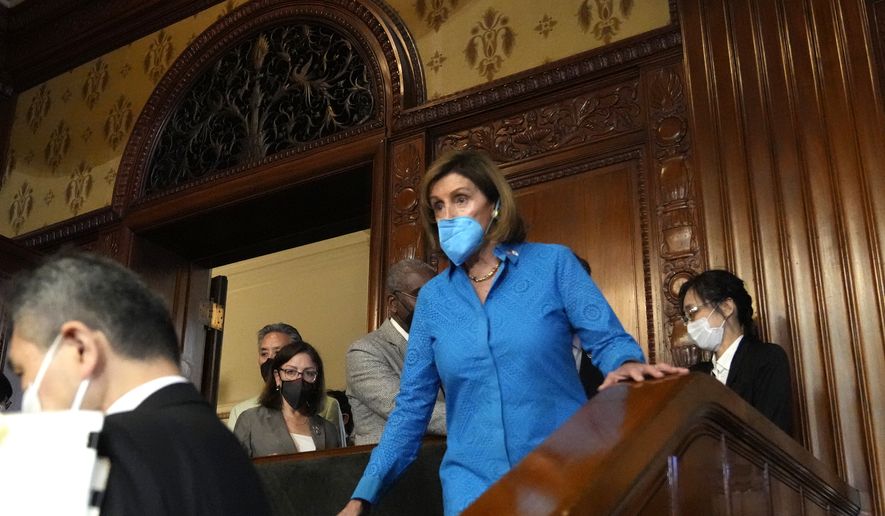China said Friday that it will stop accepting deportees from the U.S. as part of its retaliation for House Speaker Nancy Pelosi’s visit this week to Taiwan.
The move was among nine steps announced by China’s Foreign Affairs Ministry, along with ending cooperation on transnational crime and drugs, and halting talks on climate change.
It also raises the stakes for the Biden administration, which under U.S. law can punish countries that refuse to cooperate on deportations by refusing to issue new visas to that country’s citizens.
That decision belongs to Homeland Security Secretary Alejandro Mayorkas.
The Department of Homeland Security didn’t immediately respond to a request for comment Friday, but analysts urged the Biden administration to strike back.
“This is really an opportunity for the Biden administration to show it’s not going to be jerked around by China,” said Jessica Vaughan, policy studies director at the Center for Immigration Studies, which backs stricter immigration enforcement.
Under section 243(d), the part of immigration law that governs the issue, the government could deny all visas, though traditionally administrations have been more targeted. Refusing to issue short-term tourism or business visas to government officials and their families has been the most common use of 243(d).
Ms. Vaughan said that can be highly effective in a country such as China.
“It’s the elite members of these societies who are able to travel to the United States any time they want to, desperately want to come here to shop, to go to Las Vegas, to send their kids to our universities, and maybe even to work. They would very likely be swayed by even a very targeted suspension of visas,” she said. “We don’t want to suspend travel from everyone from China, and we don’t need to. That’s the beauty of this kind of leverage.”
U.S. Immigration and Customs Enforcement, which oversees deportations, has labeled China as uncooperative in the past.
But ICE has declined to release an updated list of uncooperative countries over the last year, despite repeated requests from The Washington Times. ICE would not say Friday if China is still on the uncooperative list, nor would it provide the latest data on deportations.
As of 2020, when China was on the uncooperative list, ICE still managed to deport 337 people to the country. That was down from 637 in 2019 and 726 in 2018.
Ms. Vaughan said given the Biden administration’s approach to immigration, anyone it’s trying to deport to China currently is a national security risk or has a major criminal record.
“We should not sit back and let China force its deportable criminals on American communities,” she said.
Administrations have traditionally been reluctant to use 243(d) visa sanctions, though the Trump team was more aggressive in flexing the tool.
Ms. Vaughan said Congress could rewrite the law to prod administrations to be more active.
That’s also the type of plan that could garner bipartisan support in Congress right now.
Ms. Pelosi’s visit to Taiwan, while opposed by the Biden administration, drew strong bipartisan backing on Capitol Hill, where lawmakers have long sought a tougher stance toward what they see as an increasingly aggressive China.
• Stephen Dinan can be reached at sdinan@washingtontimes.com.




Please read our comment policy before commenting.